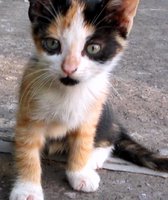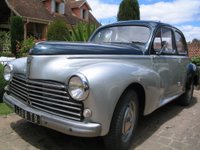The feedback from my tiny but precious fan club suggests that high-browed literary discussions are all very well, but what they really want to know are the juicy details of my daily life. I give you births and funerals, the search for identity and the circularity of time, and you want to know what colour our living room is painted! Not easy when I am – naively no doubt – trying to maintain a certain degree of anonymity amid a surprisingly small network of people...
The truth is, the reason I haven’t talked about our new flat yet is because we’ve barely had time to appreciate it. Officially, we moved in on Saturday one week ago. In fact, we barely took the time to drop off a couple of bags before whizzing off to a place called Bombolameri (or something similar), a campsite near a small river in the middle of a forest a couple of hours away from Kinshasa.

We were taken there by an Anglo-Belgian friend of mine from school who grew up in the DRC. Before leaving he made us promise, grudgingly, to “do the big one by night”. We only had a vague idea of what we were signing up for. Since we’d left quite late in the day, by the time we arrived the sun was setting. We set up camp, which in the absence of our belongings (still stuck at customs) meant spreading a thin blanket borrowed from the hotel onto the hard dirt floor, and putting up a mosquito net above it (clever Fred). Luckily, we met up with a number of other people there who were rather better prepared than we were and provided us with more substantial meals than the half-hearted bean salad we had arrived with. We then changed into our bathing suits and waited until it was dark enough to venture blindly upstream through the bush.

So there we were, a whole group of us, half-naked, barefoot, no flashlights, following a badly marked path through tall grass, clapping our hands to keep the snakes away (whatever!) and heading towards…the launch pad. The aim of the game is to launch yourself into the cold water and let the strong current zip you down the river in total obscurity until you reach a makeshift hanging bridge which you must grip with both hands, then giggle and shriek as the current almost tears off your bathing suit as you hang from the bridge. From there, it’s a relatively easy swim to a small sandy beach nearby. That was a lot of fun, and pretty safe really. That, however, was the small one.

After this brief initiation, three of us found ourselves cautiously following Mr. Intrepid and his friend, also a veteran of this place, through more tall grass, even further upstream. We should have known, really, when the friend put on some knee pads that the venture would not be as straightforward as Mr. Intrepid was keen to make it sound. But for now we followed on. It was only when we entered the forest and suddenly the darkness was taken to a whole other level; it was only when we found ourselves with arms outstretched, feeling our way through the trees, our feet sinking in the soft, warm earth, inching our way towards the increasingly loud rumbling of what could only be rapids, that we began to have serious doubts about the cleverness of this particular enterprise. When we finally waded into the water, we could feel the indomitable power of the river tugging at us, and hear the nearby roar of water tumbling over rock.

At that point, I like to think, had either Mr. Intrepid or his friend taken the time to allay our fears, to explain to us exactly what we could expect and what we should do, we might yet have been convinced to ignore every instinct and throw ourselves mindlessly into the water. Instead, however, just as one of us novices started to stutter, “Um, so, what is it exactly that, um…” we heard a cry and a splash from our right as the water pulled Mr. Intrepid in, then another from our left as his friend decided he didn’t want to be left behind, and next thing we knew it was just the three of us standing huddled with water to our knees and the choice between the vortex in front of us, or the steep climb back up the sheer banks of the river in complete darkness. We chose the climb.
Something amazing happened then that completely vindicated our choice: we found the ground lit up with something phosphorescent that we hadn’t seen on our way down, and which basically showed us the way back out of the forest. When recounted later around the campfire, this particular detail caused general hilarity and disbelief, not least because when telling the story in French, Fred tried to explain the word ‘phosphorescent’ by saying, “You know, like fairies.”
That, by the way, was the middle one, which we did do the following day, when we could actually see what we were getting ourselves into. We enjoyed it, but we were very glad we hadn’t gone in at night. As for the big one, after trying in vain to rustle up some interest from the rest of us happily napping in the shade, Mr. Intrepid dejectedly went up and did it on his own.
So coming back to our flat and the very specific questions of my beloved fan club, we did manage to sleep in it one night after returning from Bombolameri, but both of us then had to fly off in different directions, so we have left it alone and abandoned for now, only to return to it next week. Voilà!





 I hope this picture helps make my case, but I have the sinking feeling that no one else will think these greens tufts of thick treetops look anything like broccoli. Nonetheless, in a moment of rashness I will admit that as I dozed off again, the thought did cross my mind that this was probably what a mosquito flying over a stock of broccoli would see.
I hope this picture helps make my case, but I have the sinking feeling that no one else will think these greens tufts of thick treetops look anything like broccoli. Nonetheless, in a moment of rashness I will admit that as I dozed off again, the thought did cross my mind that this was probably what a mosquito flying over a stock of broccoli would see.






